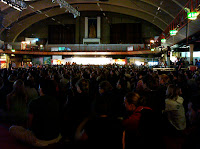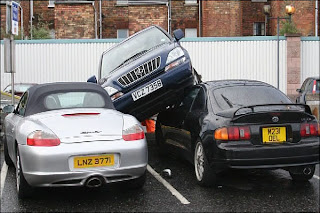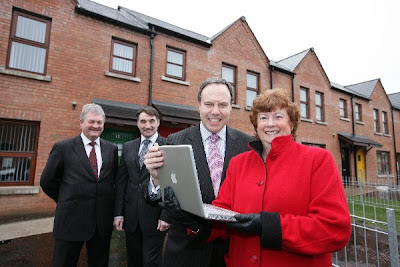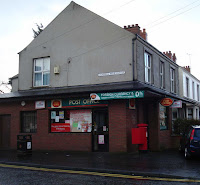
Mobile cropped up a lot in this year’s Nations & Regions Communications Market Report (general overview). Northern Ireland continues to have amongst the highest mobile ownership in the UK.
Across Northern Ireland, just over one in ten households no longer has a fixed telephone line, replying on mobiles instead. Focusing in on the two largest cities and that proportion more than doubles: around a quarter of household in Derry (27%) and Belfast (23%) rely solely on mobiles.

There is a general hypothesis that Derry has a younger-than-average population that take full advantage of everything techie. So living off a mobile fits that stereotype. But what about Belfast? Could this reflect the larger number of rented properties in Belfast, with more transient occupiers (students, migrant workers, etc) who have landlords that prohibit the installation of telephone lines/cable etc or find the minimum contract periods too restrictive or too costly given their circumstances?
Or maybe Belfast really is buzzing and city dwellers expect to be out most of the time, making a home phone line and answering machine a nuisance compared to mobile voicemail. Whatever the reason, the lack of a fixed line does mean opting out of higher speed broadband services, and moves internet usage towards work/college and mobile devices.
Last year Ofcom highlighted the issue of inadvertent or unavoidable cross-border roaming which was driving up many people’s mobile bills. Two of the mobile networks operating in NI – O2 and Three – have responded by launching new roaming tariffs or boltons which alleviate the problem of excessive charging . During the year, the EU also curtailed mobile roaming charges within Europe – which could cut some previous high call charges in half.
The level of cross-border roaming reported in the 2008 report was similar to last year. And awareness of the new tariffs in the worst-affected border areas was a paltry 20% – whereas awareness in Belfast where roaming frankly isn’t a great problem, was up at 42%. Sounds like there’s still room for improvement. (Perhaps the corporate business community has been targeted with the advertising rather than individual border consumers?)
There’s a very stark contrast between the well-established GSM (2G) mobile coverage – with over 99% of all NI post code areas having at least one mobile operator serving them – and the extremely limited local 3G coverage (44%).

Across the UK, 90% of the population live in an area served by at least one 3G operator. The Northern Ireland figure stands at just 44%, far lower than Scotland (72%) and Wales (68%).
Amazingly, London has 100% coverage. In fact, 100% of London is served by not just one, but by four or five operators!
Yet, the marketing must be getting through, as Northern Ireland take-up of 3G mobiles stands at 17%, equalling the UK average.
But if you don’t live around Belfast, Lisburn, Holywood, Bangor, Carrick, Antrim, Derry or Coleraine – think twice before you bother to save up for the 3G Apple iPhone just yet, as you might be stuck on EDGE with no 3G coverage!
And while GSM (2G) coverage is high, Northern Ireland has the lowest overall satisfaction with mobile phone reception (78%). Rural areas are markedly lower at 59%. Could that be driven by the poor 3G reception? Or maybe all those drumlins in Down are creating a lot of localised black spots?
Mobile network use in Northern Ireland is dominated by O2 with 59% of mobiles using their network. The other network providers run: Orange (14%), Vodafone (14%), T-Mobile (4%), Virgin (4%), 3 (3%), other (2%).
Away from mobile ...
At the report launch, Ofcom highlighted that approximately 38 of Northern Ireland’s 191 telephone exchanges are now unbundled and offer competition to BT through one or more of AOL, Carphone Warehouse, Sky and Tiscali. While quite a low proportion of exchanges, it does represent 51% of the population, and an improvement on the 10% figure at the end of 2006.
Northern Ireland has the most rural population of the UK, so some of these exchanges may never be sufficiently commercially lucrative o be unbundled. Across the UK, the unbundled figure is much higher, with 80% of UK households connected to unbundled local exchanges.
I’ll cover broadband in another post.















































